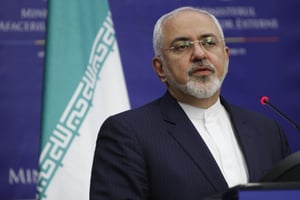
As Israel's war with Hamas enters its eleventh month, Prime Minister Benjamin Netanyahu finds himself in an increasingly precarious position. Recent revelations from high-level security meetings paint a picture of a leader caught between international pressure, domestic political considerations, and the urgent need to secure the release of hostages held in Gaza.
The American Guarantee
At the heart of the current diplomatic maneuvering is a letter of commitment from the United States. This document, discussed during Netanyahu's recent visit to the White House, would assure Israel's right to resume military operations if a proposed hostage deal fails to progress beyond its initial phase. However, sources close to the negotiations reveal a catch: the letter will only be delivered after Netanyahu signs the deal, highlighting a deep-seated mistrust between Washington and the Israeli premier.
A Divided House
Perhaps more telling than the international dynamics are the tensions within Israel's own security establishment. In a recent meeting, security chiefs reportedly confronted Netanyahu over his reluctance to move forward with the hostage deal. Their perspective is clear: the deal represents not just a humanitarian imperative but a strategic opportunity to reshape regional stability.
The discord is palpable. While Netanyahu views the deal as a potential threat, his security officials see it as a chance to unlock regional stability and move forward. This disagreement underscores a fundamental question: Is the continued military pressure on Hamas more likely to secure the hostages' release, or is it time for a diplomatic solution?
The Political Calculus
Netanyahu's hesitation appears rooted in complex political considerations. The release of Palestinian prisoners and the potential return of Palestinians to northern Gaza are particularly thorny issues for his right-wing coalition. The prime minister, ever the political survivor, must balance these domestic pressures against international expectations and the urgent humanitarian need to secure the hostages' release.
A Moment of Opportunity?
Despite the challenges, there are signs that a breakthrough may be imminent. Netanyahu's recent instructions to his negotiation team in Cairo suggest a possible shift in stance. As one insider noted, "Bibi does not move unless he is pressured."
The potential outcomes of a deal are significant: the return of hostages, a limit to regional conflict, and possibly even a diplomatic solution in the north that could allow displaced Israelis to return home. Yet, these gains come with political risks for Netanyahu.
The Road Ahead
As negotiations continue, the world watches to see if Netanyahu can navigate this complex landscape. The stakes are high: the lives of hostages, regional stability, and potentially Netanyahu's own political future hang in the balance.
The coming days may well determine not just the fate of the hostages but the broader trajectory of the Israel-Hamas conflict and the delicate balance of power in the Middle East. For Netanyahu, it's a moment that could define his legacy – for better or for worse.
*Ynet contributed to this article.














1 Comments